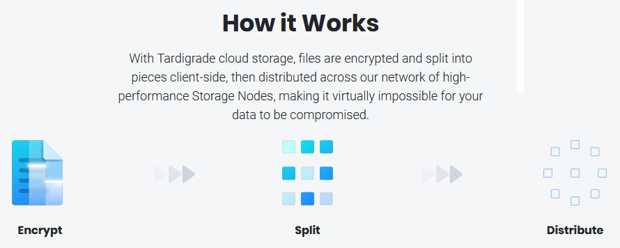Storj Labs Launches App for Qnap Devices Allowing NAS Owners to Monetize Unused HDD Capacity
Early access for Tardigrade S3 Gateway for Qnap, enabling NAS backups to secure, reliable, and affordable decentralized cloud storage
This is a Press Release edited by StorageNewsletter.com on May 22, 2020 at 2:22 pmStorj Labs, Inc. released Storage Node for Qnap, Systems, Inc. allowing users to generate revenue from their unused HDD capacity and bandwidth.
Users of all technical abilities can install the app and set up a Storage Node on the Storj Network in minutes.
The company also announced early access for the Tardigrade S3 Gateway for Qnap, which allows NAS owners to backup the data on their devices to the Tardigrade Decentralized Cloud Storage Service through Qnap’s Hybrid Backup Sync (HBS 3) tool. This integration means Qnap users can take advantage of the encryption benefits Tardigrade delivers by default and the privacy, security, and resiliency of decentralized cloud storage.
“NAS users have long searched for cloud backup solutions that deliver the same performance, reliability, and durability that enterprise users expect, but with client-side encryption and a cost that’s affordable. Tardigrade delivers on those needs, ensuring that only data owners can access their files,” said Ben Golub, executive chairman and CEO, Storj Labs. “It takes no additional power to operate a full HDD compared to an empty one. We’re proud to also empower users in the Qnap ecosystem to monetize their unused HDD capacity by being Storage Node Operators on the Storj network.“
To set up a Storage Node, Qnap users can download the Storage Node app from the company’s app marketplace. After that, they’ll follow a series of prompts to have their nodes up and running in minutes. Once their node is connected to the Storj Network, it will be sent encrypted pieces of data. All data uploaded to it is end-to-end encrypted and divided into 80 pieces – only 30 of which are required to rebuild the file-which are then spread across the network, each on a different Storage Node with unique power supply in a different geographical location. Storage Node Operators are compensated for the static capacity they provide on the network as well as the egress bandwidth that is utilized when data owners download their file pieces from the node.
Payments to Storage Node Operators are made on a monthly basis in the form of StorJ tokens, the company’s ERC-20 utility token. The firm’s tokens make it possible for the company to pay Node Operators around the world without requiring operators receiving payments to pay currency conversion fees and other costs associated with international payments. Storage Node Operators can also use their StorJ tokens to also purchase storage services on Tardigrade.
To backup their QNAP devices to Tardigrade, device owners can follow documentation that will allow them to begin storing copies of their files across thousands of Storage Nodes around the world. After installing the Tardigrade S3 Gateway, NAS owners can select Tardigrade as a storage space inside HBS 3, and add their Tardigrade login credentials.
Qnap users who backup their data to Tardigrade will be able to take advantage of the company’s enterprise-grade SLAs, including 99.9999999% durability, performance on par or better than Amazon S3, and over 99.95% availability. Because Tardigrade is a decentralized cloud storage service, the users will also be able to take advantage of its superior privacy and inherent cross-geography redundancy that comes with decentralized storage.
Resources:
Video: Demo: Qnap NAS for Storj storage nodes
Blog: Turn Your QNAP Device Into a Storage Node, Backup your NAS to the Cloud
Read also:
Storj Labs Production Launch and Availability of Tardigrade Enterprise-Grade Decentralized Cloud Storage Service
Kafkaesque, Fluree, Verif-y, CNCTED among launch partners and thousands of beta customers who have experienced enterprise-grade performance, durability, and security at fraction of price of traditional cloud providers
March 27, 2020 | Press Release














 Subscribe to our free daily newsletter
Subscribe to our free daily newsletter

